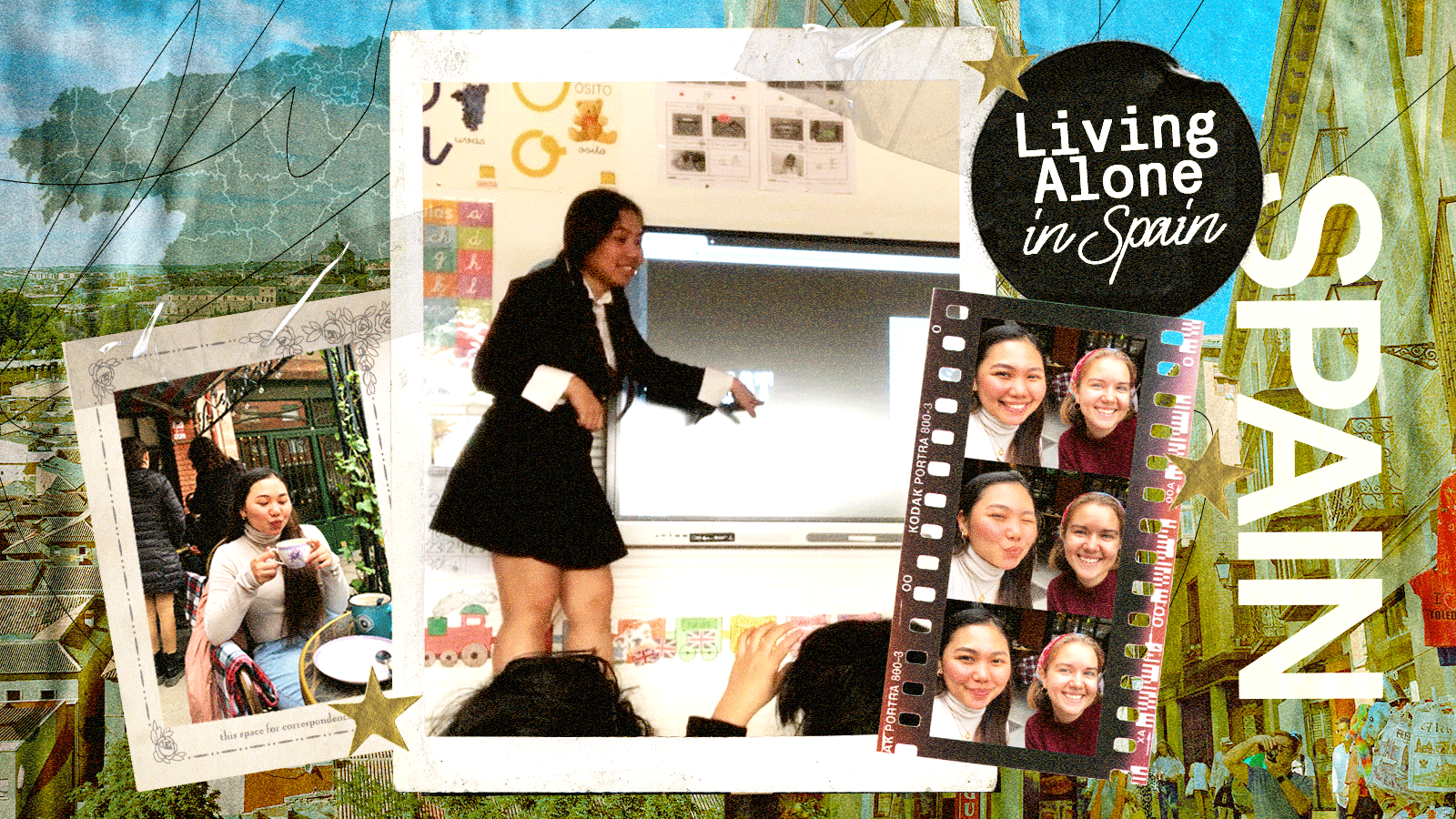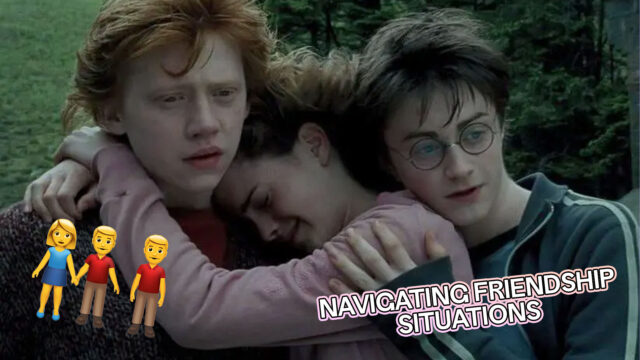Curious about living and working abroad? Hear from this 23-year old fresh graduate currently residing in Spain all about taking a once-in-a-lifetime opportunity.
Related: How This 22-Year-Old Fresh Graduate Achieved Her Dream Of Living In New York City
“The scary news is, you’re on your own now, but the cool news is, you’re on your own now.” If you’ve seen the TikToks of people traveling alone to work or study abroad set to this sound from Taylor Swift’s NYU speech, you might have felt the urge to start over in a new city or heard the call to adventure and new experiences. While it’s a huge, difficult step to take, moving to a new country is a dream aspired to by many—among them a fresh graduate that’s recently marked one month away from home.
Brittany Kirsch is a 23-year old fresh graduate of English Language Studies from the University of Santo Tomas. In October of this year, Brittany set off all by herself to Toledo, Spain to work as an auxiliar de conversación for a primary school, an opportunity offered to her by UST. Auxiliares de Conversacíon are proficient English-speakers who assist with teaching at schools in Spain, helping students (and sometimes teachers) improve their English skills.
Such work-abroad programs are offered in and outside of universities across the Philippines, allowing young Filipinos to broaden their horizons and experience different cultures. From taking better economic opportunities to simply wanting to explore the world, plenty of young Filipinos are taking the chance to live, study, or work abroad for a variety of reasons.
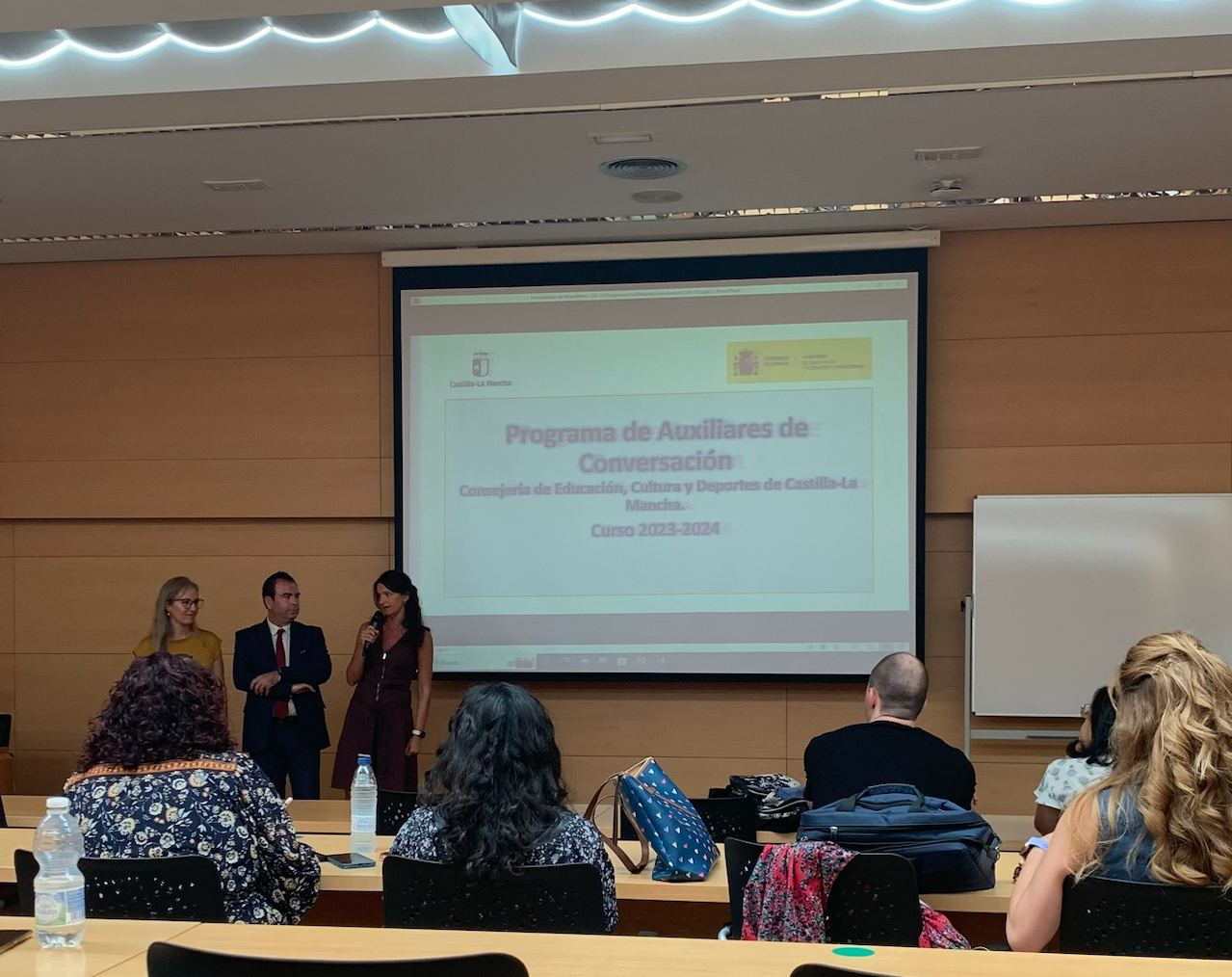
It’s a daunting endeavor—living far away from home requires a lot of sacrifice. But if you’re interested in the experience, hear it all from a young woman who is managing living on her own halfway across the world.
Tell me about yourself!
I’m Brittany Kirsch and I’m currently an Auxiliar de Conversación in Toledo, Spain. I’ve been an intern here for almost two months now and I’m loving it! I work as an English language and culture assistant at a kindergarten and primary school in Numancia de la Sagara in Toledo.
What is the work that you do in Spain? What are some of the best things about it?
As a language and culture assistant, my job is to motivate the students (and also teachers) in school to learn a foreign language (i.e., English) by helping them improve their oral and communication skills in English. What we also do as auxiliars that I find very valuable in this program is that we get to introduce and inject our respective cultures.
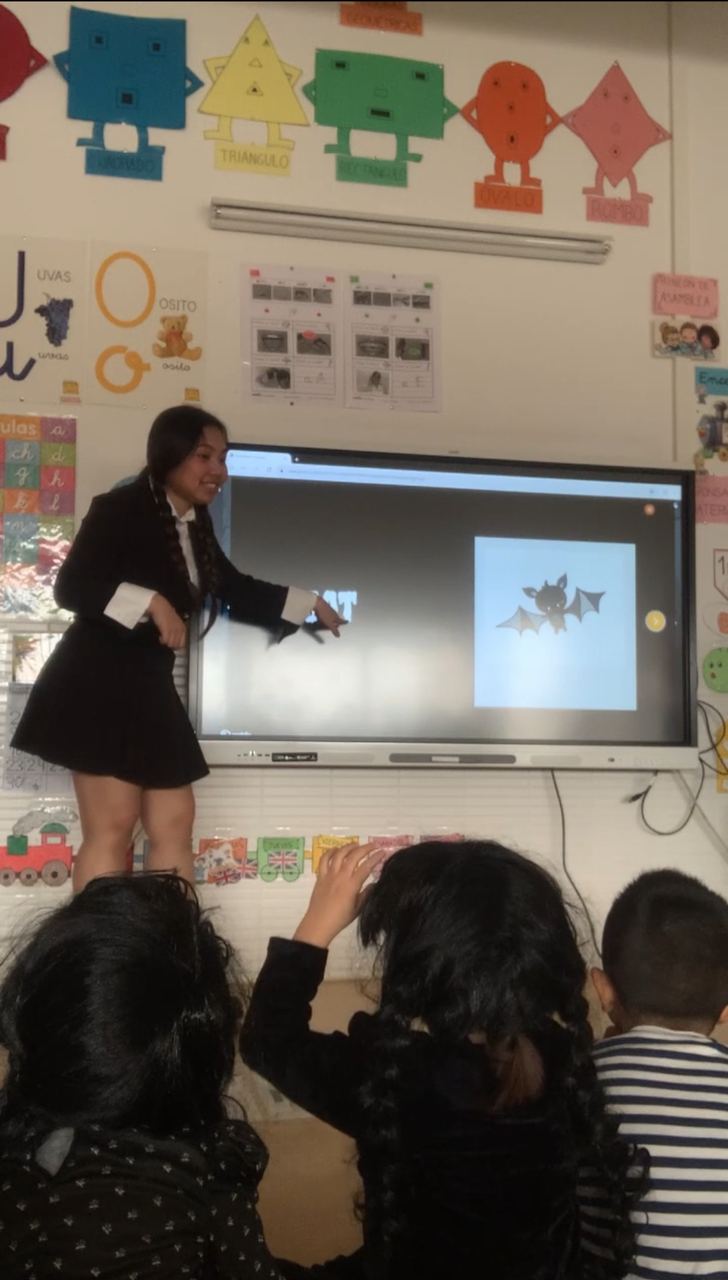
For instance, during my first day as an auxiliar, I got to introduce myself and present to the student things about myself, my country, and culture. This promotes cultural diversity and boosts [students’] critical awareness of particular cultures that exist that they may welcome and engage [with].
That being said, the best thing about my work is that I get to be dynamic and creative in the way I present and conduct my learning materials for teaching the language while at the same time injecting my very own culture.
What are some of the hardest things about it?
The hardest thing about the work is, of course, the language barrier. Most of the students only comprehend Spanish, which is understandable because they’re in kindergarten and primary school and they’re still in the process of their language acquisition of English. After all, this is the very purpose of the program—to influence and motivate them to learn a foreign language!
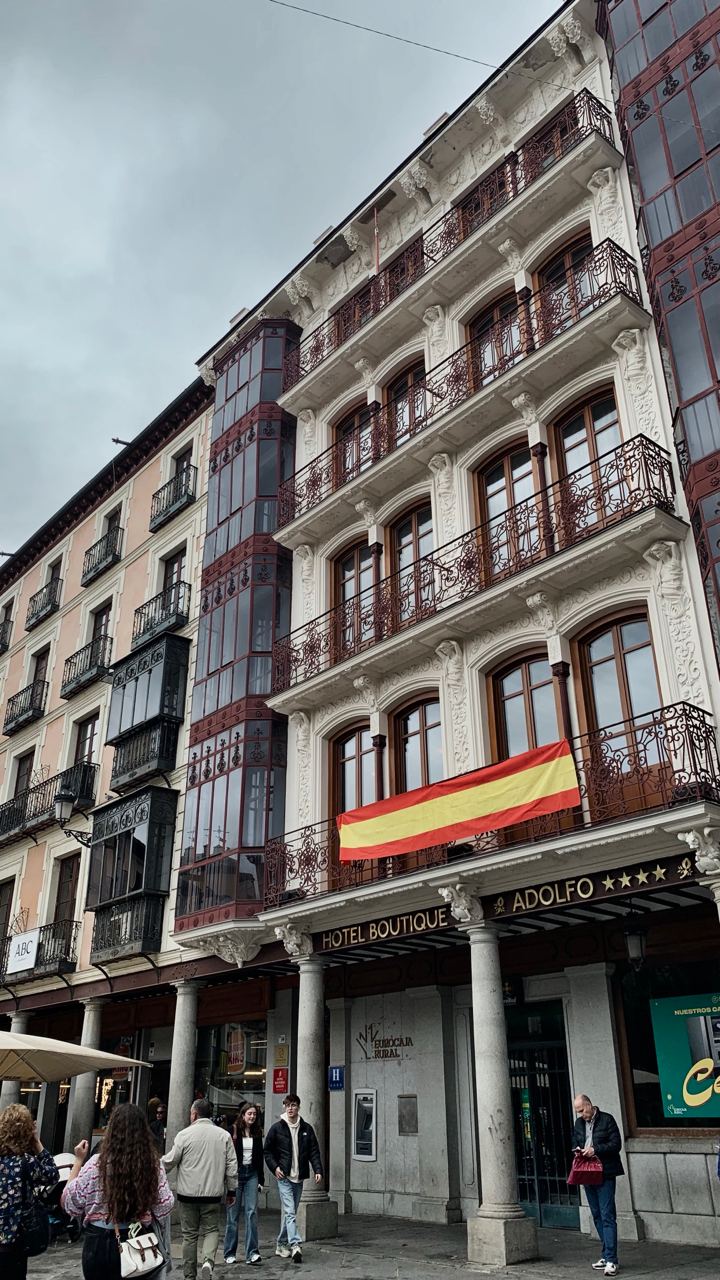
How were you able to learn about and take this opportunity?
I first heard about this opportunity from my Spanish professor in college who introduced to us the language assistantship program. The program is being offered to all the undergraduates and alumni of the Faculty of Arts and Letters in the University of Santo Tomas and other interested applicants in and out of the university. I believe the program is also offered in selected universities across the country.
Could you walk me through your decision making process regarding moving solo and working abroad?
When I first heard about the program, I was already interested in joining. But it took some time for me to really think if I should grab such an opportunity. Part of me was thinking that I could gain a lot of experience from the program; but at the same time I was thinking that this may be too good to be true, in that I may not be really fit to be an auxiliar. I considered a lot of things—such as being far away from home for at least a year which is a huge step, because I grew up with a mom who really wants to keep her children close to her all the time.
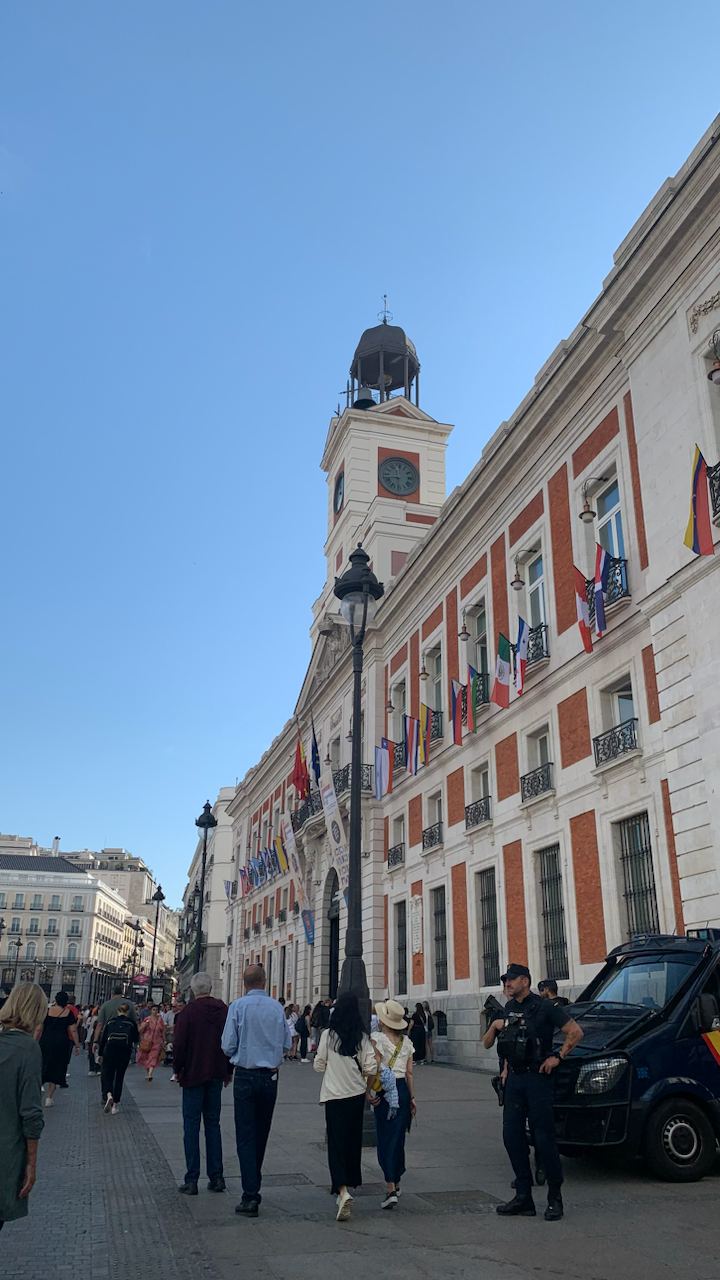
But I finally decided that I’d take the risk when I went to a mini despedida party of a friend of ours who happened to be moving to Spain for an internship because she took the same program. I asked her about the application, paper processing, and other [things], and [her excitement and answers] inspired me to apply. During my ride home from the party, I felt the urge to apply, but of course, a little part of me was still skeptical.
What really pushed me to apply without any doubt was my Mama saying “Sige, i-try mo na!” [excitedly] when I got home and brought up the program to her. [That’s when] I knew I was ready to take the leap.
What are the best things about living and working all by yourself all the way across the world?
One of the best things about living and working all by myself abroad is that I get to unearth more about myself as I live and work independently. I’m able to discover things I have yet to know about when it comes to how I handle living alone, manage my work and life balance, and meet new people from different cultures.

The second best thing about living and working abroad is getting out of my comfort zone and actually engaging in intercultural practices. Exploring new things include immersing myself in intercultural dialogues where I communicate with people of varying cultural identities.
What has been the hardest part of living away from home?
The hardest part of living away from home would definitely be…homesickness. The day I actually arrived here in Spain, I already got homesick to the point that I kept video calling my family. I [experienced] separation anxiety [during] the first week of my stay here, which I already expected because I knew that I would really need some time to adjust.

Are you living by any mottos or principles that’s getting you through this experience?
There’s one saying that I always think of that’s getting me through this experience—’que sera, sera’ or ‘whatever will be, will be‘. I heard it as a lullaby that my mother kept singing to us when we were young, which is from Doris Day’s rendition of the song Que Sera, Sera (Whatever Will Be, Will Be).
It constantly reminds me that there will always be a future in everything that I do, even if I don’t know what the future really holds. But what I know is what I could do now. So, should I want my future to be bright, successful, and exciting, I should do everything to the best of my abilities.
Do you have any advice for people thinking about taking opportunities like this?
My only advice for people thinking about taking the same program is to simply grab this opportunity especially when it is already within sight! It may not be simple—just as how it took some time for me to decide before applying—but with the right motivation, foundation, and purpose, I’m sure they’ll be great auxies soon!
Interview has been edited for clarity and length. Photos courtesy of Brittany Kirsch.
Continue Reading: How This Young Creative Manages Living Alone In Her Own Apartment
